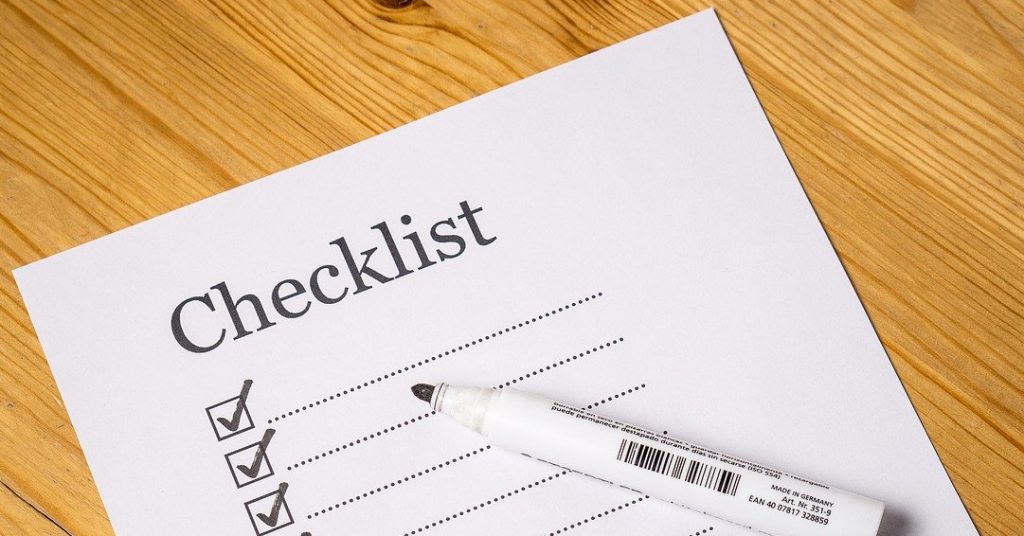We have all been there. And might be there again. It doesn’t matter anymore whether you got it straight away after your first interview, or after a seemingly endless number of meetings and negotiations: you signed the contract and secured yourself a new job. Congratulations, this a big achievement! After the first joyous moments and telling everyone you know about it, you start to realize that the first days on the job are on the horizon. This will be another stressful and important time, but don’t worry too much. In this article we will try to ease you through that undoubtedly eventful initial period.
Arranging things before the first day
There might be some work to do beforehand. If you move to a new country or city, you should make sure that you find a new home with easy access to your new place of work. If the new job is located close to where you live, be sure to know your way there. Ideally not only to the address, but also inside the building, all the way to the office. If you had the interview at the office, this was a perfect opportunity to ask for a brief office tour. If you cannot remember or have not been at your new workplace before, don’t be shy to ask at the reception. They will gladly help you out. Of course, pay attention to these instructions as you don’t want to be the person that asks the way 5 more times.
Make sure that you arrive a little early on your first day to get to grips with the geography of your new location.

Another chance at first impressions
As you might have learned already, first impressions matter. You wouldn’t have made it here had you done a bad job during the interview. Some things are the same: you should dress for the occasion. If you are not sure, it is better to be overdressed rather than under. It speaks for itself that you should endeavor to look presentable.
There are some differences though; keep in mind that an interview is a very different situation with less “firsts”. On your first day at the job you will have to make a first impression on significantly more people, both from different departments and in a swathe of different situations. Due to this, a first day is always daunting, especially if you are an introvert. You cannot escape talking to people you don’t know yet (a portion of which, you may later deem that you do would prefer not to get to know outside of the business).
Introductions, introductions, introductions
It can be very useful to prepare a short introduction. Be proactive and ask for a round of introduction if you did not get one straight away. Don’t be afraid to take the first steps at introducing yourself. You don’t have to introduce yourself to everyone, but make sure that the people you will work with most get to know you.
Don’t bring lunch to work. This way you will have to ask your new colleagues for their tips on the best places to go, or they might invite you to join them for a bite. If they don’t, kindly ask if they would like to have lunch with you. During such social situations you have a chance to have a more informal talk with colleagues away from work. This helps to allay a lot of the fears you may have.

Changes
There is an endless list of options of what you were doing before you got this job. Maybe you just worked in a different department in the same company. Or you were studying and this is your first job. You might come from a different industry. In either case, you will encounter some changes during your first days. Things might be more strict, or just more loose in comparison to your previous situation. Maybe there is a lot of interaction between team members, maybe there is not. The advice here is simple: go with the flow and get accustomed. Keep calm at first, it’s best not to bulldoze in on your first day. Be humble.
It’s always a good idea, time permitting, to sit together with your line manager and talk about the expectations for your job. Ask as many relevant questions as you can. This will make it easier to understand your new tasks, and research shows that new people that are inquisitive perform better.
Don’ts
Perhaps it is easier to focus on what you shouldn’t do. As mentioned above, bulldozering on your first days will not help you to integrate into a new team/company. Especially if you are in the same position as you were in your previous job(s), try to not sound too know-it-all about processes you are used to doing in a different way.
Don’t be negative on your first days at the job. Or ever. Negativity is very bad publicity for yourself as a person to work with. Don’t forget that you are always building your personal brand. On the other hand, don’t go joking around either. And most certainly don’t join the office gossip yet – remember, you are new and probably don’t know oeiole well enough for that. Also try not to dispense too much of your personal life straight away. You do not know yet who you can trust or who will spill the news around the office to become part of this same office gossip.
Another thing worth mentioning is to avoid requesting leave on your first few days. If you already have something planned for a long time, mention it during the interview. Either the starting date will be adjusted to take that into account, or your manager will already know beforehand so there’ll be no surprises.

Remember this for your first days:
The key take-aways for you here are:
• Arrange things in time
• Arrive early (but just a little)
• Be ready to introduce yourself
• Don’t bring lunch
• Go with the flow
• Be positive
I hope these tips can help you to have a great start at your new job!




